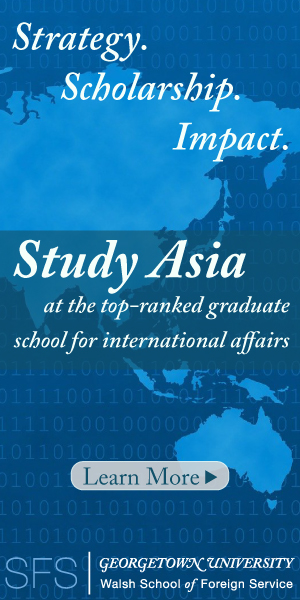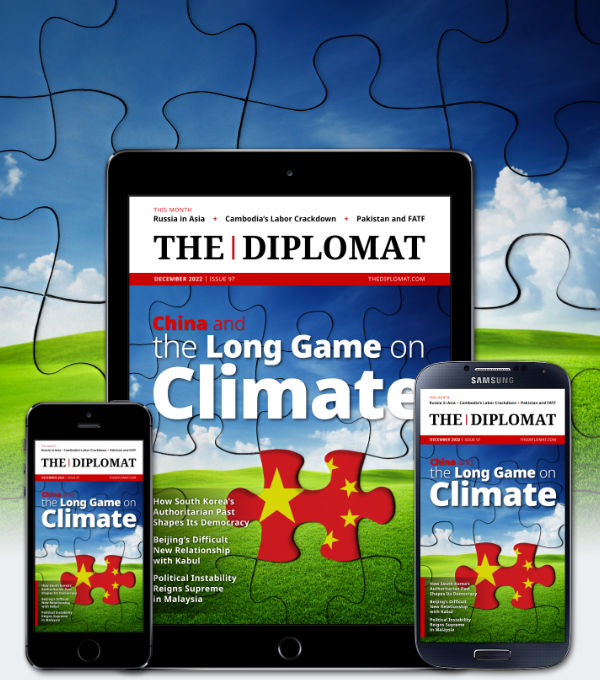| Welcome to the latest issue of Diplomat Brief. This week our top story breaks down China’s role in Sri Lanka’s debt restructuring process. We also have an interview with long-time Central Asia journalist Bruce Pannier distilling the takeaways of an eventful year for the region. |
| Story of the week |  | Economy Demystifying China’s Role in Sri Lanka’s Debt RestructuringWhat Happened: Since defaulting on its sovereign debt, Sri Lanka has been working with creditors to restructure its debt in order to access funds from the IMF. Crucial to this process is China, Sri Lanka’s largest bilateral lender, and a country that historically has not played well with others when it comes to debt negotiations. While Beijing has offered debt relief in the past, it has typically been limited to official development assistance (rather than the infrastructure loans Sri Lanka took out) and done in a bilateral, rather than multilateral, setting. Our Focus: To understand China’s role in Sri Lanka’s debt restructuring, we first have to get a handle on the extent and amount of Chinese loans to Sri Lanka. “While the often-cited number is that Sri Lanka’s debt to China is approximately 10 to 15 percent of its total public external debt, its debt to Chinese creditors amounted to approximately $7.3 billion, or 19.6 percent, of the country’s total outstanding foreign debt,” Sri Lankan economic researchers Umesh Moramudali and Thilina Panduwawala write for The Diplomat. Most of Sri Lanka’s debt to China came in the form of export credits that were used to finance infrastructure projects – with Chinese SOEs receiving the funds as payment for construction work. What Comes Next: The types and sources of these loans matter a great deal for future restructuring negotiations. “Sri Lanka has borrowed heavily from both China Exim and China Development Bank, which operate in separate ways, so they cannot be expected to act in concert in the debt restructuring negotiations,” Moramudali and Panduwawala explain. And Chinese banks have historically been resistant to write off export credit loans, for fear of both encouraging other countries to demand similar treatment and incentivizing China’s own SOEs to pursue financially risky projects, with policy banks left holding the bag. As a result, Sri Lanka’s domestic economic crisis is now tightly intertwined with domestic politics and economic policy within China – thus the slow pace of debt restructuring talks. Read this story |
| Behind the News | INTERVIEW Bruce PannierBruce Pannier, authors of RFE/RL’s Central Asia in Focus newsletter and host of the Majlis podcast, on how the war in Ukraine has changed perceptions of Russia in Central Asia: “Central Asia’s people and governments have lost respect for Russia, and the more the Central Asian states develop relations with other countries, particularly Islamic countries, the less respect and fear they will probably have for Russia. Read the interview |
| This Week in Asia | Northeast Asia North Korea Pursues Military Recon SatelliteNorth Korea’s latest missiles launches on December 18 were “an important final-stage test for the development of reconnaissance satellite,” its state media announced. North Korea remains determined to advance its military capabilities across the board, not just in missile technology; actual deployment of the military spy satellite won’t be far behind. And Kim Yo Jong had harsh words for anyone who doubts the North’s technological capability to carry out its plans. Find out more | South Asia Terrorism Stalks South AsiaIt’s been a difficult stretch for South Asia, with terrorist attacks in both Pakistan and Afghanistan over the past week. Amid the surge in terrorism that has followed the Taliban’s takeover of Kabul in August 2021, regional governments are playing the blame game. India and Pakistan, in particular, are pointing fingers at each other as the main culprits sponsoring terrorist groups in the region. Find out more | Southeast Asia Malaysian PM Survives Confidence MotionMalaysia’s Prime Minister Anwar Ibrahim this week resoundingly won a parliamentary vote of confidence, shoring up his leadership and ensuring the stability of his government – at least for now. The longtime opposition leader was appointed after the inconclusive general election on November 19, and heads a unity government that includes several smaller rival parties. Anwar called the vote on the first day of the current sitting of parliament after the opposition questioned his legitimacy to rule. With the vote out of the way, Anwar can get on with the business of implementing his ambitious reform agenda. Find out more | Central Asia What Does a Taliban Education Include?In recent days, an Afghan newspaper leaked a draft of the Taliban’s proposed changes to the country’s school curricula and the news is not good. Depictions of living things, human rights, foreign inventors, and elections are out and sowing the “seeds of hatred against Western countries” is in. To add insult to injury, two weeks after allowing high school age girls to take high school exit exams (despite not being allowed to study for over a year) the Taliban’s education ministry announced girls and women would not be allowed to attend university. Find out more |
| Visualizing APAC |  | A wholesale market for vegetables, fruits, flowers, and foodgrains, lewduh in Shillong, Meghalaya state, is one of the oldest traditional markets of Northeast India. Here, women of the Khasi community run the show. See the full picture |
| Word of the Week | Security Nước xa không cứu được lửa gầnA Vietnamese saying meaning “distant water cannot put out a nearby fire” – which emphasizes Vietnam’s preference to always rely on itself to balance against China rather than another distant great power. Find out more |
| Scheduling Note | The Diplomat newsletter will be on hiatus next week. We will be back on January 4, 2023. We wish all our readers a joyful New Year! |
|  |




